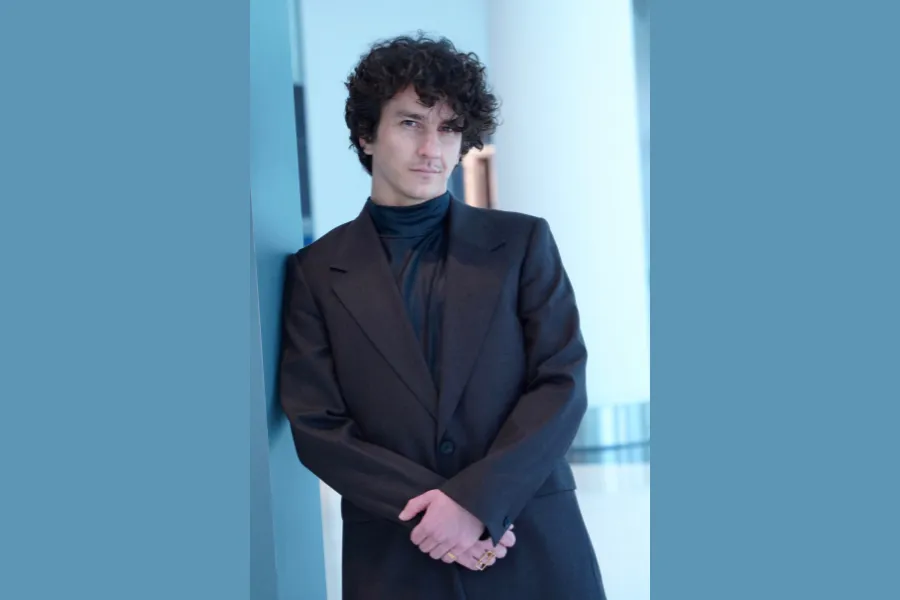By Carlos Roa, VoLo Foundation
Climate change is not only addressed with technology and innovation, but also with culture. This is the premise behind the work of Bruno Olmedo Quiroga, a technology strategist and cultural engineer who has dedicated himself to transforming the narrative around the climate crisis. From his experience at Harvard to his venture into Hollywood, Olmedo has found in stories a powerful tool to change perceptions and generate impact.
He will discuss this on March 13 at the VoLo Foundation’s upcoming Climate Correction 2025 conference in Orlando, Florida.
You define yourself as a cultural engineer and technology strategist. How does this translate into action?

Throughout my career, I have learned and combined several disciplines, creating something unique. As a cultural engineer, my job is to design culture itself: to understand what people believe, why they act the way they do and how we can influence their behavior. In my case, the goal is to generate a positive impact, promoting values aligned with environmental regeneration and a better relationship with the planet.
I also focus on cultural strategies for artificial intelligence, Web3 and blockchain companies, areas in which I began my career in 2015 at the Harvard Innovation Lab. There, we explored how to use blockchain technology to build a better world, even before there was a solid infrastructure for it.
What is your educational background?
I studied engineering psychology, which applies cognitive psychology to the design of products and systems, analyzing the interaction between humans and technology. This ranges from the design of a chair to the placement of a button in an application, always considering how our brain works and how culture influences our perception of objects and systems.
Later, I worked at IDEO, one of the world’s leading innovation firms. In the 1980s, Hovey-Kelley Design – which later became IDEO – proposed the first commercially available Apple mouse and has led revolutionary projects in health, education and technology. My work there consisted of researching new technologies and their application to solve real problems.
How did you decide to apply your knowledge to climate action?
At IDEO, I led a responsible innovation portfolio and realized that, despite the interest in sustainability, many companies prioritized profits over environmental impact. I repeatedly heard, “I love the idea, but we can’t approve the budget because it would cost us more money.” This led me to a conclusion: financial value follows cultural values, and until culture puts the planet first, business will not.
That’s when I decided to shift my focus and take my knowledge of human behavior and culture to Hollywood, where society’s perceptions and values are really shaped.
How did Climate Reality Check come about and what is its purpose?
Climate Reality Check was born out of the need to make climate change visible in the stories we consume. To understand its importance, let’s consider the concept of the “designated driver.” Prior to 1988, the idea that someone in a group of friends should refrain from drinking in order to drive didn’t exist. It was a campaign integrated into TV shows and movies, and in just six years, drunk-driving fatalities in the U.S. dropped by 30%.
The human brain learns through stories, not statistics. However, less than 2% of Hollywood content mentions climate change. For decades, oil companies have been funding movies and series that normalize fossil fuel consumption. We seek to do the same, but from an environmental awareness perspective.
What is the Climate Reality Check tool?
This tool asks screenwriters and producers two key questions: Does climate change exist in the world of this story? Are any characters in the story aware of it? Our goal is for more and more films and series to answer “yes” to these questions. If the stories reflect the climate crisis, audiences will also begin to see it as an undeniable reality.
How do you envision the future of entertainment in relation to climate change?
We are at a tipping point. The entertainment industry has the power to transform collective perception and change behaviors. My hope is that more and more content creators will join this movement, integrating the climate crisis into their stories in an organic and meaningful way. Only then will we be able to accelerate the cultural change needed to address this global challenge.
Bruno Olmedo Quiroga will outline the details and scope of his work at the VoLo Foundation’s Climate Correction conference, which will take place on March 12-13 at The Celeste Hotel in Orlando, Florida. More details and participation information can be found here.
Carlos Roa is senior press and PR director for VoLo Foundation. VoLo Foundation is a financial supporter of The Invading Sea. This piece was originally published at https://volofoundation.org/news/bruno-olmedo-believes-hollywood-can-change-how-we-perceive-climate-change/. Banner photo: An aerial view of the Hollywood sign in Los Angeles with Burbank in the background (iStock image).
Sign up for The Invading Sea newsletter by visiting here. To support The Invading Sea, click here to make a donation. If you are interested in submitting an opinion piece to The Invading Sea, email Editor Nathan Crabbe at ncrabbe@fau.edu.



